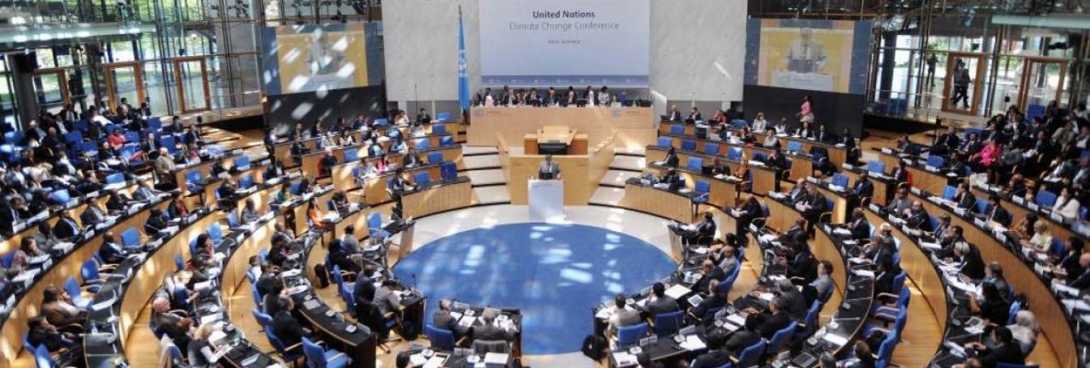





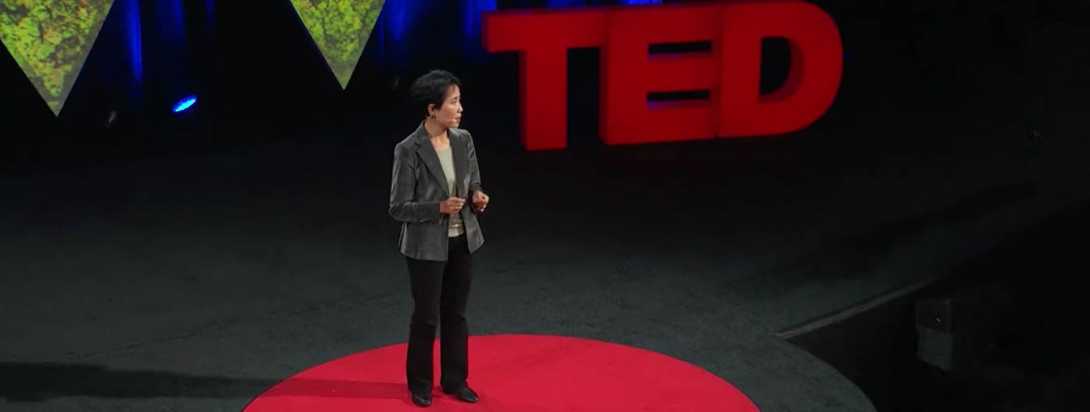
Economist Naoko Ishii, CEO, Global Environment Facility (GEF), is on a mission to protect the planet's shared resources, known as the global commons, that are vital for our survival.
"Our economies are no longer local. When we moved away from being local, we started to lose our connection to the commons. We carried economic objectives, goals, and systems beyond the local, but we did not carry the notion of taking care of the commons," Naoko Ishhi.
"Our mistake was to assume that the capacity of the earth for self-repair had no limits. It does have limits. The message from the science is very clear: we humans have become an overwhelming force to determine the future living conditions on earth, and what’s more, we are running out of time. If we don’t act on them, we will be losing the global commons. It’s only our generation who are able to preserve it - preserve the commons as we know them. Now is the time we start managing the global commons as our parents or our grandparents managed their local commons," Ishii stated.
Naoko Ishii added: "We all share one planet in common. We breathe the same air, we drink the same water, we depend on the same oceans, forests, and biodiversity. There is no space left on earth for egoism. The global commons must be kept within their safe operating space, and we can only do it together."
In an eye-opening talk about the wellness of the planet, Ishii outlines four economic systems we need to change to safeguard the global commons, making the case for a new kind of social contract with the earth.





 Sustainable Energy in Humanitarian Settings
Sustainable Energy in Humanitarian Settings
 Spurring Energy Access Finance in Africa
Spurring Energy Access Finance in Africa
 Government Leadership
Government Leadership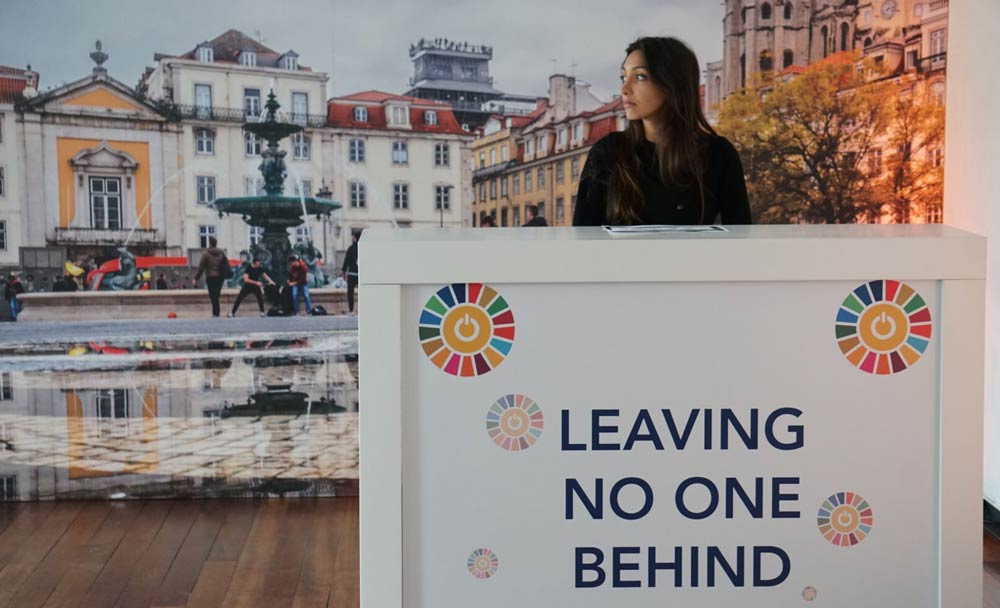





Banner photo credit to Kaia Rose / Connect4Climate

 One billion people – or 13% of the world’s population – still live without electricity. Sub-Saharan Africa, and Central and South Asia continue to be the areas of the world with the largest access deficits. Almost 87% of the world’s people without electricity live in rural areas.
One billion people – or 13% of the world’s population – still live without electricity. Sub-Saharan Africa, and Central and South Asia continue to be the areas of the world with the largest access deficits. Almost 87% of the world’s people without electricity live in rural areas. 
 The number of people gaining access to power has been accelerating since 2010, but needs to ramp up further to achieve universal access to electricity by 2030. If current trends continue, an estimated 674 million people will still live without electricity in 2030.
The number of people gaining access to power has been accelerating since 2010, but needs to ramp up further to achieve universal access to electricity by 2030. If current trends continue, an estimated 674 million people will still live without electricity in 2030.
 Some of the strongest gains were made in Bangladesh, Ethiopia, Kenya and Tanzania, which all increased their electricity access rate by 3% or more annually between 2010 and 2016. Over the same period, India provided electricity to 30 million people annually, more than any other country. Sub-Saharan Africa’s electrification deficit has begun to fall in absolute terms for the first time.
Some of the strongest gains were made in Bangladesh, Ethiopia, Kenya and Tanzania, which all increased their electricity access rate by 3% or more annually between 2010 and 2016. Over the same period, India provided electricity to 30 million people annually, more than any other country. Sub-Saharan Africa’s electrification deficit has begun to fall in absolute terms for the first time.
 Tens of millions of people now have access to electricity through solar home systems or connected to mini-grids. However, these remain concentrated in about a dozen pioneering countries where penetration of solar electricity can reach as much as 5-15% of the population.
Tens of millions of people now have access to electricity through solar home systems or connected to mini-grids. However, these remain concentrated in about a dozen pioneering countries where penetration of solar electricity can reach as much as 5-15% of the population.
 Three billion people – or more than 40% of the world’s population – do not have access to clean cooking fuels and technologies. Household air pollution from burning biomass for cooking and heating is responsible for some 4 million deaths a year, with women and children at the greatest risk.
Three billion people – or more than 40% of the world’s population – do not have access to clean cooking fuels and technologies. Household air pollution from burning biomass for cooking and heating is responsible for some 4 million deaths a year, with women and children at the greatest risk. 
 Parts of Asia have seen access to clean cooking outpace growth in population. These positive outcomes were driven largely by widespread dissemination of LPG or piped natural gas. In India, Pakistan, Indonesia and Vietnam, the population with access to clean cooking technologies grew by more than 1% of their population annually.
Parts of Asia have seen access to clean cooking outpace growth in population. These positive outcomes were driven largely by widespread dissemination of LPG or piped natural gas. In India, Pakistan, Indonesia and Vietnam, the population with access to clean cooking technologies grew by more than 1% of their population annually. 
 In Sub-Saharan Africa, however, population growth in recent years has outstripped the number of people gaining access to clean cooking technologies by a ratio of four to one.
In Sub-Saharan Africa, however, population growth in recent years has outstripped the number of people gaining access to clean cooking technologies by a ratio of four to one. 
 Clean cooking continues to lag the furthest behind of all the four energy targets, due to low consumer awareness, financing gaps, slow technological progress, and lack of infrastructure for fuel production and distribution. If the current trajectory continues, 2.3 billion people will continue to use traditional cooking methods in 2030.
Clean cooking continues to lag the furthest behind of all the four energy targets, due to low consumer awareness, financing gaps, slow technological progress, and lack of infrastructure for fuel production and distribution. If the current trajectory continues, 2.3 billion people will continue to use traditional cooking methods in 2030. 
 There is mounting evidence of the uncoupling of growth and energy use. Global gross domestic product (GDP) grew nearly twice as fast as primary energy supply in 2010-15. Economic growth outpaced growth in energy use in all regions, except for Western Asia, where GDP is heavily tied to energy-intensive industries, and in all income groups. However, progress continues to be slow in low income countries, where energy intensity is higher than the global average.
There is mounting evidence of the uncoupling of growth and energy use. Global gross domestic product (GDP) grew nearly twice as fast as primary energy supply in 2010-15. Economic growth outpaced growth in energy use in all regions, except for Western Asia, where GDP is heavily tied to energy-intensive industries, and in all income groups. However, progress continues to be slow in low income countries, where energy intensity is higher than the global average.
 Globally, energy intensity – the ratio of energy used per unit of GDP – fell at an accelerating pace of 2.8% in 2015, the fastest decline since 2010. This improved the average annual decline in energy intensity to 2.2 % for the period 2010-2015. However, performance still falls short of the 2.6% yearly decline needed to meet the SDG7 target of doubling the global rate of improvement in energy efficiency by 2030.
Globally, energy intensity – the ratio of energy used per unit of GDP – fell at an accelerating pace of 2.8% in 2015, the fastest decline since 2010. This improved the average annual decline in energy intensity to 2.2 % for the period 2010-2015. However, performance still falls short of the 2.6% yearly decline needed to meet the SDG7 target of doubling the global rate of improvement in energy efficiency by 2030.
 Improvement in industrial energy intensity, at 2.7% per annum since 2010, was particularly encouraging, as this is the largest energy consuming sector overall. Progress in the transport sector was more modest, especially for freight transportation, and is a particular challenge for high-income countries. In low and middle-income countries, the energy intensity of the residential sector has been increasing since 2010.
Improvement in industrial energy intensity, at 2.7% per annum since 2010, was particularly encouraging, as this is the largest energy consuming sector overall. Progress in the transport sector was more modest, especially for freight transportation, and is a particular challenge for high-income countries. In low and middle-income countries, the energy intensity of the residential sector has been increasing since 2010.
 Six of the 20 countries that represent 80 percent of the world’s total primary energy supply, including Japan and the US, reduced their annual primary energy supply in 2010-15 while continuing to grow GDP – indicating a peak in energy use. Among the large energy-intensive developing economies, China and Indonesia stood out with annual improvement exceeding 3 percent.
Six of the 20 countries that represent 80 percent of the world’s total primary energy supply, including Japan and the US, reduced their annual primary energy supply in 2010-15 while continuing to grow GDP – indicating a peak in energy use. Among the large energy-intensive developing economies, China and Indonesia stood out with annual improvement exceeding 3 percent. 
 As of 2015, the world obtained 17.5% of its total final energy consumption from renewable sources, of which 9.6% represents modern forms of renewable energy such as geothermal, hydropower, solar and wind. The remainder is traditional uses of biomass (such as fuelwood and charcoal).
As of 2015, the world obtained 17.5% of its total final energy consumption from renewable sources, of which 9.6% represents modern forms of renewable energy such as geothermal, hydropower, solar and wind. The remainder is traditional uses of biomass (such as fuelwood and charcoal). 
 Based on current policies, the renewable share is expected to reach just 21% by 2030, with modern renewables growing to 15%, falling short of the substantial increase demanded by the SDG7 target.
Based on current policies, the renewable share is expected to reach just 21% by 2030, with modern renewables growing to 15%, falling short of the substantial increase demanded by the SDG7 target. 
 Rapidly falling costs have allowed solar and wind to compete with conventional power generation sources in multiple regions, driving the growth in the share of renewables in electricity to 22.8% in 2015. But electricity accounted for only 20% of total final energy consumption that year, highlighting the need to accelerate progress in transport and heating.
Rapidly falling costs have allowed solar and wind to compete with conventional power generation sources in multiple regions, driving the growth in the share of renewables in electricity to 22.8% in 2015. But electricity accounted for only 20% of total final energy consumption that year, highlighting the need to accelerate progress in transport and heating. 
 The share of renewable energy in transport is rising quite rapidly, but from a very low base, amounting to only 2.8% in 2015. The use of renewable energy for heating purposes has barely increased in recent years and stood at 24.8% in 2015, of which one third was from modern uses.
The share of renewable energy in transport is rising quite rapidly, but from a very low base, amounting to only 2.8% in 2015. The use of renewable energy for heating purposes has barely increased in recent years and stood at 24.8% in 2015, of which one third was from modern uses. 
 Since 2010, China’s progress in renewable energy alone accounted for nearly 30% of absolute growth in renewable energy consumption globally in 2015. Brazil was the only country among the top 20 largest energy consumers to substantially exceed the global average renewable share in all end uses: electricity, transport and heating. The UK’s share of renewable energy in total final energy consumption grew by 1% annually on average since 2010 – more than five times the global average.
Since 2010, China’s progress in renewable energy alone accounted for nearly 30% of absolute growth in renewable energy consumption globally in 2015. Brazil was the only country among the top 20 largest energy consumers to substantially exceed the global average renewable share in all end uses: electricity, transport and heating. The UK’s share of renewable energy in total final energy consumption grew by 1% annually on average since 2010 – more than five times the global average.











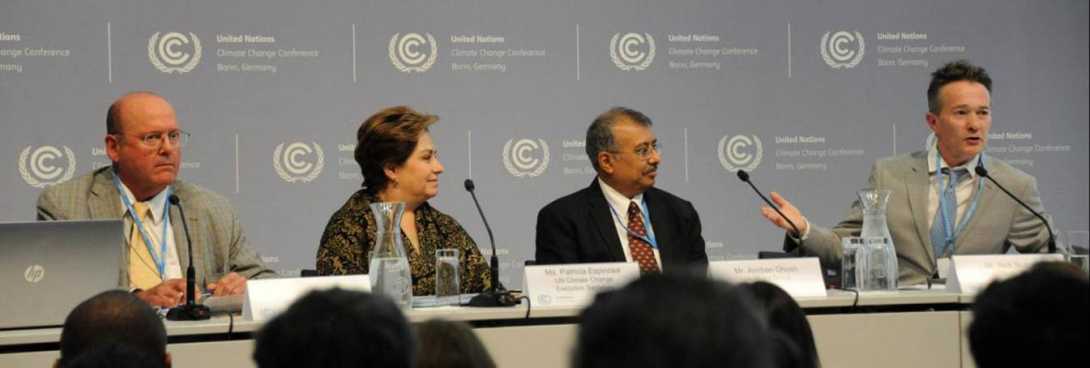







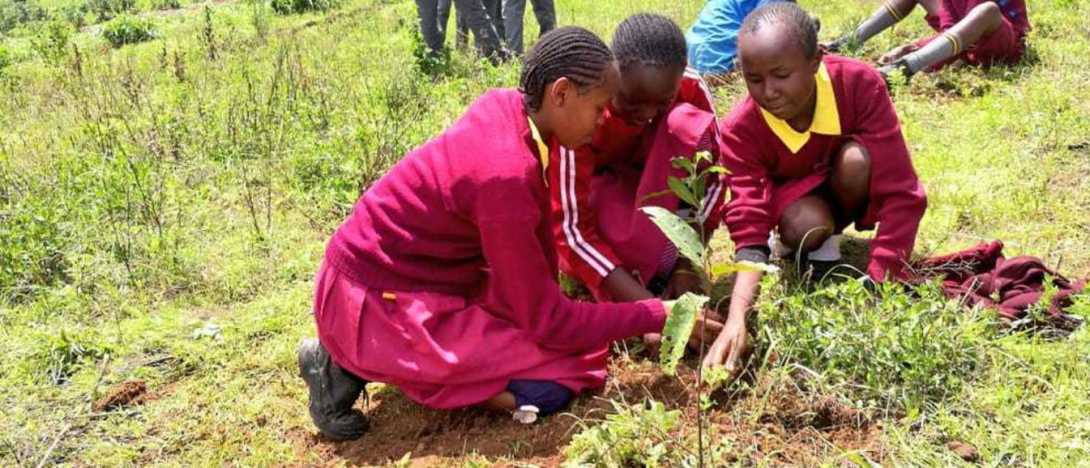
Kenya's President Uhuru Kenyatta led the country in a national tree planting exercise this Saturday, May 12. The national event was themed "Panda Miti, Penda Kenya" and took place at the Moi Forces Academy in Kamukunji sub-county (Nairobi).
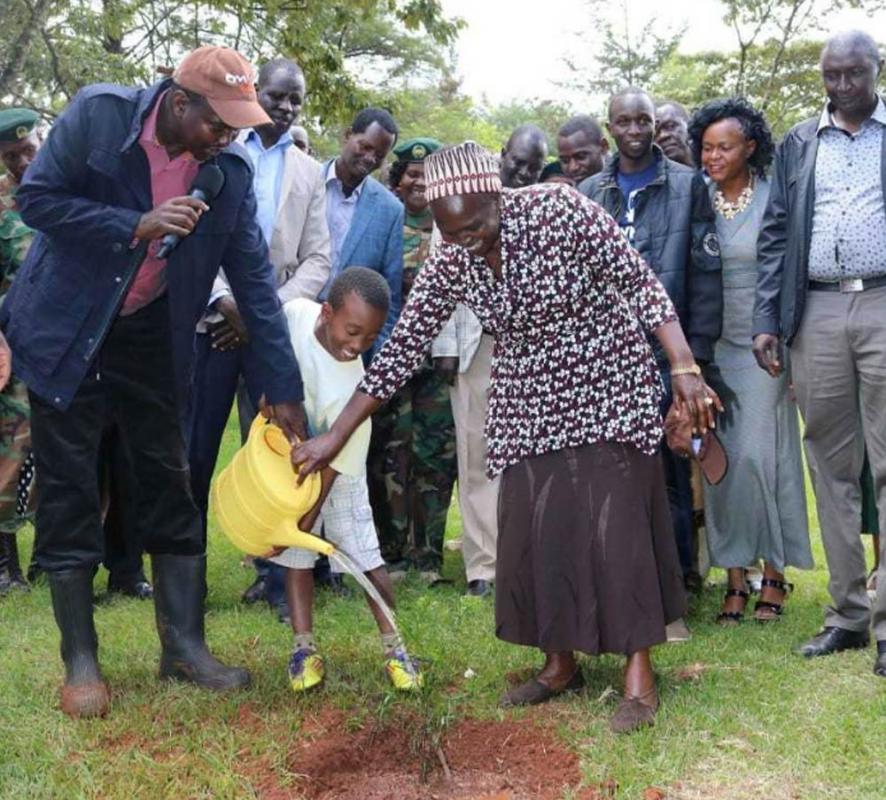
The initiative is in line with the Kenyan government plans to grow 1.8 billion trees in the next five years in an effort to achieve the 10 percent globally accepted tree cover.
"The signs are clear: water is scarce and getting scarcer; recent droughts have been unusually severe; and, as we have had cause to remember today, the floods we endure are ever more serious," President Uhuru Kenyatta said in a speech to celebrate the National Tree Planting Day. "We cannot protect our forests, and mitigate climate change unless we teach our sons and daughters how to manage our natural resources."

Cinema Planeta International Film and Environment Festival celebrates this year its 10th edition from April 24 to 29, 2018. Responsible consumption is in the spotlight.
Each cycle is an opportunity to reflect. In the past ten years, Cinema Planeta AC has built a cultural and educational movement based on film, art, and science that provides the public the tools to be better informed and make conscious and reasoned decisions.
The focus on the environment, education, and work in the field of communications led Cinema Planeta being awarded Nezahualcoyotl Prize for Nature Conservation by the Commission of Natural Protected Areas (CONANP) in 2010, and Prize of Ecology and Environment on the part of the Miguel Alemán A.C. Foundation, in 2017.
Last year, Cinema Planeta produced its first documentary Nahui Ollin, Sol de Movimiento premiered at the Guadalajara Film Festival and presented at various festivals in Mexico and Europe. In 2018, Cinema Planeta will present the new production named El mar Incendiado by director Carlos Armella.
Our patterns of consumption and production generate waste on the one hand and a shortage of essential products on the other. That is why this year Cinema Planeta emphasizes Responsible Consumption - how we decide what goods and services to consume, taking into account price, quality, social, and labor characteristics of its production and, of course, the environmental consequences and impacts.
Connect4Climate Program Manager Giulia Braga was invited to be part of the Mexican Official Selection Jury.
The Cinema Planet opening event was at the Chapultepec Ecological Park in Cuernavaca on Tuesday, April 24, at 8 pm.

Photo Credit: Cinema Planeta
On April 25 at 8:30 pm at the Old Railway Station of Cuernavaca, Cinema Planeta, in collaboration with the Film Library of the UNAM, will project a series of silent films set to music by Celso Duarte and the Corridistas Surianos.
On Thursday, April 26 at 11:30 pm, the Festival focuses on the Noche of Terror (Night of Terror) with the screening of the documentary Rats, from the United States, directed by Morgan Spurlock.
On April 27 at 8 pm, at the Teopanzolco Cultural Center, Cinema Planeta will have a special event with the presentation of the film Dusk Chorus from Italy and Belgium, directed by Nika Saravanja and Alessandro D'Emilia. This film will take you to the sounds of the Amazon.
The touching film Jane, directed by Brett Morgen with unpublished images of the life of Jane Goodall, will be screened at the awards ceremony on April 28 at 8 pm.
Within the selection of Mundos (Worlds), the international films section, Cinema Planet will present the retrospective of the acclaimed Austrian filmmaker Michael Glawogger to include his documentary trilogy about the world of work - Workingman’s Death, Megacities, and Whores’ Glory - as well as his latest film Untitled finished after his death in Africa after contracting malaria. The Ecos section invites the International Environmental Film Festival (FINCA) of Argentina. Tierra, section dedicated to Mexican films, will screen five feature films and 12 shorts. Palomitas, a children's film section, will present beautiful stories from Turkey, Iran, the United States and China. Cuenca, the section created to promote the production of environmental films from the Balsas River area, will feature four short films and three feature films.
The 10th edition of the Cinema Planet Festival takes place thanks to the support and participation of the Fideicomiso de Turismo de Morelos, Government of the State of Morelos, Secretariat of Environment and Natural Resources, Cineteca Naciona, Mexican Institute of Cinematography, Ministry of Culture of the State of Morelos, Universidad Autónoma of the State of Morelos, Municipal Government of Cuernavaca, Municipal Government of Cuautla, Green Film Network, the culture institutes of the embassies of France, Austria and Portugal in Mexico, Cinemex, and institutions, educational centers, companies and media.
Banner and thumbnail photo credit to Cinema Planeta

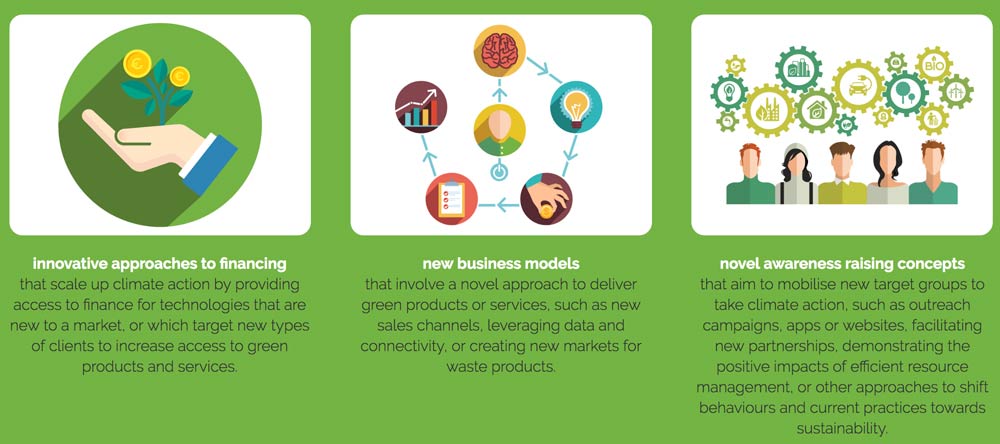

 established companies
established companies
 experienced start-ups
experienced start-ups
 non-governmental organizations (NGOs)
non-governmental organizations (NGOs)
 universities or research institutes
universities or research institutes
 other relevant organisations
other relevant organisations
 renewable energy solutions
renewable energy solutions
 energy efficiency/conservation
energy efficiency/conservation
 sustainable use of resources: including improved water, waste and material management
sustainable use of resources: including improved water, waste and material managementHosted by the World Bank Group and supported by Italy’s Ministry of the Environment and Energy Security and Germany’s Federal Ministry for Economic Cooperation and Development, Connect4Climate (C4C) is a global partnership for a livable planet that connects, creates, and communicates to build long-lasting change for future generations.